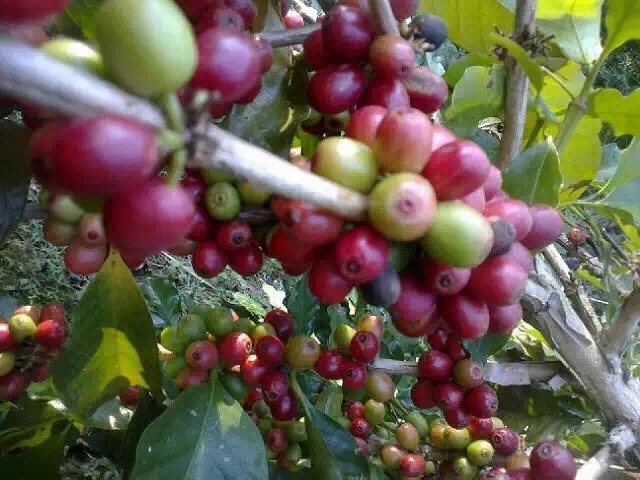Is Kopi Luwak a big lie or a delicacy? Let you know and fully understand Kopi Luwak.
When it comes to Kopi Luwak, people will probably think of high prices, civets and poop.
Some people doubt that coffee is inevitably contaminated with fecal smell, and it would be foolish to spend 500 yuan on a cup of dung-flavored coffee!
There are also complaints that the ridiculously high price of Kopi Luwak is just a big lie of commercial hype!
However, there are also people who ironize that people who have not drunk Kopi Luwak are delusional. Kopi Luwak is the best in the world, you don't understand.
Is it a treasure? Or hype? Opinions are widely divided.
Today, let's get to know the mysterious Kopi Luwak and the story behind it.
The Origin of Kopi Luwak
During the Dutch colonial period from 1830 to 1870, small fruit coffee was introduced into coffee and fruit plantations in the East Indies. Although coffee orchards produced a lot, Dutch colonists forbade local farmers to take coffee fruits without permission.
When these workers are faced with the coffee fruits they grow with their own hands, they naturally have the curiosity to try.
Farmers are afraid to pick them directly from trees and occasionally find that local civets also eat coffee fruits and have whole coffee beans in their feces.
They take the undigested coffee beans back and wash them, bake and grind them, and get a drink called Kopi Luwak.
The coffee had an unimaginably strong flavor and soon became popular among local residents and Dutch colonists.
Even in those days, Kopi Luwak was expensive.
The production process of Kopi Luwak
The first thing to understand is that Kopi Luwak is actually called civet coffee (Kopi Luwak), not any cat can produce Kopi Luwak!
Musk cats inhabit trees, omnivores, withdrawn by nature, is a wild animal endemic to Indonesia.
Wild civets choose the most ripe coffee fruits as food. After passing through the civets' digestive system, the outer flesh of the coffee fruit is digested, while the hard coffee beans inside are excreted with feces.
It is not as some people think that coffee beans are digested into poop and then extracted from them.
After this digestion process, coffee beans have a magical fermentation, unique flavor, mellow taste.
The reason is that the civets' digestive system destroys the protein in the coffee beans, reduces the bitterness of the coffee and increases the warm and moist taste.
Collect the coffee beans discharged by the civets, remove the film on the surface of the coffee seeds and dry them in the sun.
After stir-frying, the civet coffee beans are made.
A jin of civet droppings can only extract about 150g of coffee beans, and there will be 20% loss in the production process, which is evident in the rarity.
How does Kopi Luwak taste?
You must wonder what this magical Kopi Luwak tastes like.
It is a pity that the experts who have tasted Kopi Luwak are polarized in their evaluation of its taste. The only thing we can be sure of is that there is no dung smell.
Supporters believe that coffee made in Indonesia has its own earthy herbal flavor and has a high consistency. Kopi Luwak, on the other hand, has a heavier earthy flavor, thicker like syrup, peculiar smell and a mint cool taste in the mouth.
Coffee critic Chris Rubin said, "the aroma of the wine is so rich and strong, and the coffee is incredibly rich, almost like syrup." Its thickness and chocolate taste, and lingering on the tongue for a long time, pure aftertaste. "
For people who like Kopi Luwak, it is the best in the world.
The opposition is stronger and sharper. In the coffee industry, Kopi Luwak is widely regarded as a product with novelty as the selling point, rather than real quality coffee.
The American Special Coffee Association (SCAA) commented on Kopi Luwak: the industry consensus is that it tastes bad! Two points lower than the lowest coffee!
SCAA quoted a coffee expert as saying: "obviously, the selling point of Kopi Luwak is its story, not its quality." It can be speculated that the processing of Kopi Luwak diluted the high-quality acidity and taste and made the taste more insipid. Of course, many people also seem to regard this insipid taste as the advantage of this kind of coffee. "
Tim Carman, a food columnist for the Washington Post, commented on Kopi Luwak sold in the United States and concluded that "it tastes like rotten, lifeless taste." It's like petrified dinosaur shit in bath water. I can't finish it.
Coffee reviewer Stephen Vicks published a report: "two of the four samples are moldy, and the other two cups are reminiscent of grass, potion tape, iodine and raw oysters, with a rough taste."
In the eyes of the opposition, Kopi Luwak is an overpackaged story. Due to the public's lack of awareness of real high-quality coffee, the public fell into the trap of businessmen.
Excessive pursuit of profit leads to change of taste
The over-packaging and commercial hype mentioned by the opposition are indeed true.
The natural origin of Kopi Luwak is mainly concentrated in Indonesia's islands of Sumatra, Java, Bali and Sulawesi, as well as the Philippines and some places.
A kilogram of raw beans is worth US $400,000, and sales are US $1000 per kilogram. According to the US News BBC, the annual output of coffee made from picking up wild civet droppings is only 500kg in Indonesia.
The economic value of Kopi Luwak is so high that the yield provided by wild civets alone cannot satisfy the appetite of the local people.
Farmers take wild civets back home to raise them to facilitate the collection of feces. More forced feeding, so that civets produce more feces.
Now farmers in India, Vietnam, China and the Philippines have joined the production of Kopi Luwak. In fact, Kopi Luwak's current global industrial production may be at least 50 tons.
In this situation, many companies that buy coffee beans still claim that they can only collect 500kg of wild Kopi Luwak a year to justify its high price.
In addition, the current situation of civets is also sad. Civet cats were originally omnivores, and coffee fruits are just their supplementary food.
Farmers keep civets in cages, providing only coffee fruits to these omnivores and not allowing them to eat any other food. The civets who can only eat coffee fruits are extremely malnourished. The fur fell off. Nerve damage.
After not being able to mass-produce "cat shit", it was mercilessly discarded. But because of their long captivity, they cannot survive in the wild.
Wild civets only choose the most mature and sweet coffee fruits, and the quality of coffee beans harvested varies from season to season.
The imprisoned civets have no choice but to eat raw and cooked. So Kopi Luwak is not a commercially viable crop.
Kopi Luwak made with such eagerness for quick success and quick profit is much inferior in quality and taste, but even so, some people still buy it.
All in all, Kopi Luwak is undoubtedly an overpackaged stale story that satisfies some people's weird, superficial vanity desires.
Just from the point of view of food, the consensus of the industry is that Kopi Luwak tastes bad.
Master is willing to believe that Kopi Luwak really tastes average. With this rational knowledge, Master will feel sweeter when drinking instant coffee.
Source: late night canteen 12AM
Important Notice :
前街咖啡 FrontStreet Coffee has moved to new addredd:
FrontStreet Coffee Address: 315,Donghua East Road,GuangZhou
Tel:020 38364473
- Prev

Good news for coffee lovers! The advantages of drinking coffee often outweigh the disadvantages.
Coffee, as one of the three major drinks in the world, has become the favorite drink of many people, and many people in life are used to having one cup or more every day. However, the effect of coffee on the human body has been mixed. Recently, an article published by Medscape (professional medical search engine) summarizes the recent research on the effects of coffee on the human body. Coffee has a positive effect on health
- Next

The latest information in Yunnan: the General History of Chinese Coffee Culture will be published soon
After a week-long review by an expert group of four archaeologists, four literature and history experts and three coffee experts headed by Professor Li Kunsheng of Yunnan University, the manuscript of the General History of Chinese Coffee Culture was approved yesterday, and the evaluation opinions were put forward. I would like to recommend it to the publishing house. The book will be published in both Chinese and English and distributed at home and abroad. It is understood that the book was written by members of the Yunnan Provincial Association of Science and Technology,
Related
- Can lightly roasted coffee beans be used to extract espresso? How finely should you grind high-quality coffee beans to make Italian latte?
- What is the difference between the world's top rose summer coffee and Yejia Shefi? What are the flavor characteristics of Yega Shefi coffee and Panama rose summer?
- The ceremony is full! Starbucks starts to cut the ribbon at a complimentary coffee station?!
- A whole Michelin meal?! Lucky launches the new "Small Butter Apple Crispy Latte"
- Three tips for adjusting espresso on rainy days! Quickly find the right water temperature, powder, and grinding ratio for espresso!
- How much hot water does it take to brew hanging ear coffee? How does it taste best? Can hot water from the water dispenser be used to make ear drip coffee?
- What grade does Jamaica Blue Mountain No. 1 coffee belong to and how to drink it better? What is the highest grade of Blue Mountain coffee for coffee aristocrats?
- What are the flavor characteristics of the world-famous coffee Blue Mountain No. 1 Golden Mantelin? What are the characteristics of deep-roasted bitter coffee?
- Can I make coffee a second time in an Italian hand-brewed mocha pot? Why can't coffee be brewed several times like tea leaves?
- Hand-brewed coffee flows with a knife and a tornado. How to brew it? What is the proportion of grinding water and water temperature divided into?

